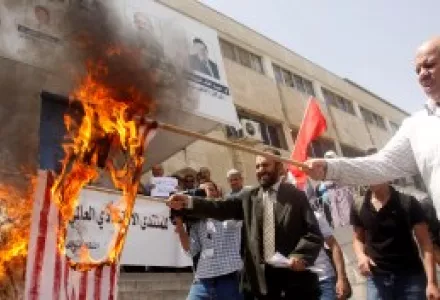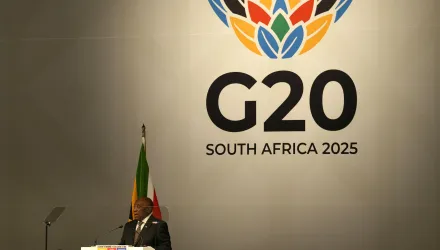A seminar with Giacomo Luciani, Scientific Advisor and Director, Master in International Energy Program, Paris School of International Affairs, Sciences Po; and Adjunct Professor of Interdisciplinary Studies, Graduate Institute of International and Development Studies, Geneva. Fifth session of the fall 2016 study group led by MEI Visiting Scholar Professor Robert Springborg, Globalization and Its Discontents in the Middle East and North Africa.
RSVP is required for this session. Click here to RSVP. Please note that an RSVP does not guarantee a seat at the session.
Progressive globalization, which prevailed in the last 50 years of the past century and early years of the current one, was not conducive to MENA regional integration and development. Rather, it encouraged widening gaps between MENA countries, heightening tensions and potential conflicts. It also led to much increased income and wealth concentration, whether measured country by country or regionally, in an extreme example of the wider global experience. The turn of the globalization tide will not improve the situation: MENA is in the throes of a regional civil war, whose end is nowhere in sight.
Giacomo Luciani leads the Master in International Energy at the Paris School of International Affairs, Sciences Po; and is adjunct professor of interdisciplinary studies at the Graduate Institute of International and Development Studies in Geneva. In 2010-13 he was Princeton Global Scholar at the Woodrow Wilson School of Public and International Affairs and the Department of Near Eastern Studies.
His work has focused on the political economy of the Middle East and North Africa. With Hazem Beblawi, he edited a book on “The Rentier State” (1987), which is frequently cited as one of the origins of the concept. In his subsequent work he has focused on the linkage between evolving sources of government revenue and democratization, on the emergence of a GCC bourgeoisie, and on the economic causes of the Arab Spring. He just recently finished editing a book on “Combining Economic and Political Development” which discusses which economic policies may support democratic transitions and address popular expectations.



